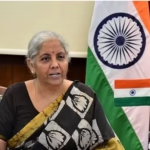BANGKOK – Political tension has deepened in Thailand after Acting Prime Minister Phumtham Wechayachai’s request to dissolve the House of Representatives was rejected. The proposal, which aimed to trigger a quick general election, was denied by the Privy Council.
This move has added to the ongoing instability across the country. Parliament is now expected to vote for a new prime minister on Friday following the removal of Paetongtarn Shinawatra. These developments could shape how democracy works in Thailand for years to come.
Recent turmoil can be traced to the 29 August decision by the Constitutional Court, which removed Paetongtarn Shinawatra from office. In a 6-3 decision, the court said she broke ministerial ethics during a phone call with former Cambodian leader Hun Sen, discussing a sensitive issue involving the border.
The Constitutional Court viewed her actions as unconstitutional and against the national interest. Paetongtarn, daughter of former Prime Minister Thaksin Shinawatra and head of the Pheu Thai Party, was suspended on 1 July while awaiting the verdict. Her removal is the second setback for the Shinawatra family this year, following Srettha Thavisin’s ousting in August 2024.
Phumtham Wechayachai, a senior member of Pheu Thai and Deputy Prime Minister, took over as acting prime minister on 3 July, after Suriya Juangroongruangkit briefly filled in. Phumtham tried to consolidate a divided government, but his party’s coalition was already weakened and lacked a majority, making it difficult to maintain control as opposition groups pushed to take over.
The House Dissolution Rejected
On 3 September, Deputy Prime Minister Phumtham asked King Maha Vajiralongkorn to dissolve parliament, hoping to allow fresh elections within two months. The move responded to the People’s Party, now the biggest opposition bloc, which announced support for Anutin Charnvirakul from the Bhumjaithai Party to become prime minister.
The People’s Party demanded that any new government dissolve parliament within four months to let the public decide its future.
Phumtham presented this step as a way to “reset” the political system and fix what he described as a democracy that was no longer functioning well. He called for a referendum on the heavily criticized 2017 Constitution, known for giving the military and monarchy greater control.
He also suggested returning, even if temporarily, to the more open 1997 Constitution. However, the Privy Council turned down his request, citing concerns about whether a caretaker administration had the power to make such a move.
The decision has kicked off a wave of legal challenges. Members of Bhumjaithai filed complaints against Phumtham, saying he acted outside his legal powers.
Activist Srisuwan Janya also referred the case to the National Anti-Corruption Commission, raising questions about both the legality and ethics of Phumtham’s actions. Another complaint based on Thailand’s strict royal defamation law has left Phumtham at risk of serious consequences.
Upcoming Vote for Prime Minister
With the request to dissolve the House rejected, attention is now on the vote for a new prime minister scheduled for 5 September. According to the current constitution, only those nominated during the 2023 general election can be considered.
These include Anutin Charnvirakul of Bhumjaithai and Chaikasem Nitisiri from Pheu Thai. Anutin has secured the support of 146 lawmakers, helped by the endorsement of the People’s Party, but it’s unclear if he has enough backing in the 500-member parliament. Coalition talks are ongoing but fraught with distrust.
The People’s Party (formerly the Move Forward Party), which won the most seats in 2023 but was shut out of power by the Senate, is now the key player.
Natthaphong Ruengpanyawut, its leader, says any new government must push for constitutional change and early elections, echoing many voters’ frustrations. Meanwhile, Pheu Thai is working to hold on to its fragile coalition, with Phumtham seeking new deals behind the scenes.
The deadlock over the House dissolution has left the future unclear. If Anutin becomes prime minister, his promise to hold elections within four months could mean Thais return to the polls by early 2026.
On the other hand, if Pheu Thai stays in control under Chaikasem Nitisiri, the caretaker government may hold on longer, risking more public anger and further damage to the flagging economy.
Future of Thailand’s Democracy
Thailand’s economy, which depends heavily on tourism, is already feeling the effects of political uncertainty. The target of 39 million tourists set by Paetongtarn’s “Amazing Thailand Grand Tourism and Sports Year 2025” faces setbacks because of the unstable situation. Investors are wary, and experts warn that continued problems in government could worsen things.
The present crisis also highlights how much influence the monarchy and courts still have over Thai politics. The Constitutional Court has removed three prime ministers since 2023, and now the Privy Council has blocked plans for an early election. Many see the 2017 Constitution as a source of ongoing strife, because it curbs the power of elected parties, and calls for reform are getting louder.
As Friday’s vote approaches, Thailand finds itself at a crucial moment. What happens next will decide both its leadership and the health of its democracy.
Failure to form a stable government could deepen public frustration, as shown by comments from Bangkok resident Kanjana Sangkasupan, who said, “It’s always the same power struggles, while our lives remain unchanged.”
There’s hope that a new coalition or the promise of early elections could break the cycle, but much depends on whether the current system allows it. People across the country, and many watching from abroad, are waiting for Bangkok’s next move as the future of Thailand’s democracy hangs in the balance.













